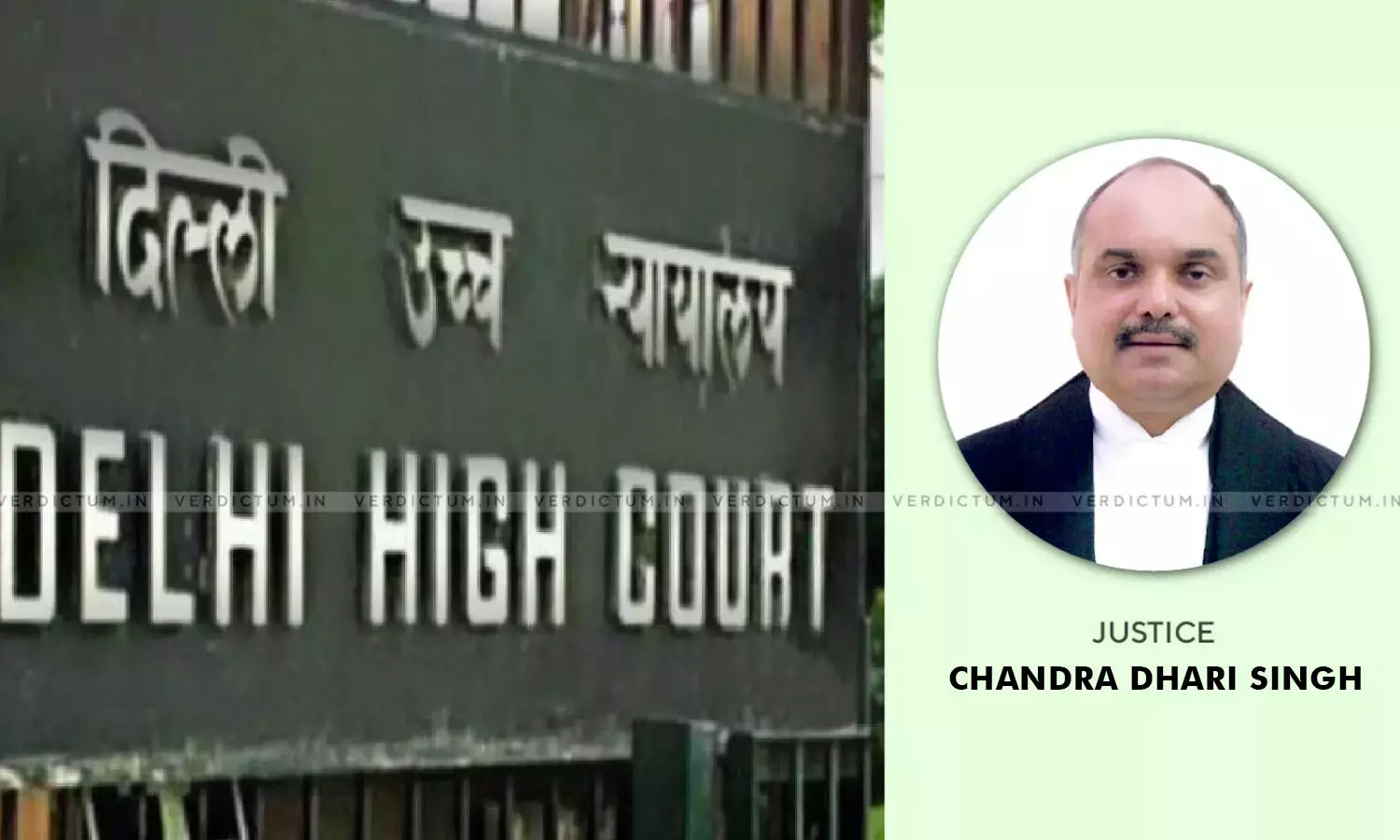
Govt Entity Having Been Privatized Is Not Amenable To Writ Jurisdiction Under Article 226 & Is Not ‘State’ Under Article 12: Delhi HC
 |
|The Delhi High Court in a petition filed against Ministry of Civil Aviation and Air India Limited has held that a government entity which has been privatized is not amenable to writ jurisdiction under Article 226 of the Constitution as the same does not fall within the definition of ‘State’ as per Article 12.
A Single Bench of Justice Chandra Dhari Singh said, “This Court is of the view that under Article 226 of the Constitution of India, a writ cannot be issued against a Government entity which has been subsequently privatized and is presently a private entity which is not performing a public duty anymore. The Government entity which has been privatized is not amenable to the writ jurisdiction under Article 226 of the Constitution of India and does not fall within the ambit of Article 12 of the Constitution of India. The guiding factor, therefore, is the nature of duty imposed on such a body namely, the public duty to make any authority amenable to the writ jurisdiction.”
The Bench noted that under Article 226, the phrase “for any other purpose” must be given a narrower meaning to exclude private entities performing their private and commercial duties from the ambit of writ jurisdiction.
Advocate Hari Prakash appeared on behalf of the petitioners while Advocate Anjana Gosain appeared on behalf of the respondents.
Brief Facts -
The respondent i.e., Air India Limited (AIL) issued a notification for casual empanelment and pursuant to it, applications were invited for appointment of Casual Labourers against future requirement/vacancies in the unskilled categories. The due process of appointment was conducted and accordingly the petitioners were appointed between the year 2000 and 2004, and were deployed in the various departments of the respondent. The petitioners had grievances regarding the regularisation of their employment as they were not yet awarded the status of permanent employees even though they were working as Casual Labourers in the organisation since the last 18 years.
The petitioners pursuant to their grievances, made several representations before the respondent, addressing their grievances. In the year 2011, around 68 casual workers of the Centaur Hotel, Srinagar which is a wholly owned subsidiary of the respondent, were regularised and thereafter, some of the Casual Labours who were initially appointed on compassionate ground were also regularised. Emails were sent by the respondent stating the terms of transfer of the petitioners to different contractors. Hence, the petitioners approached the High Court against the decision whereby they were transferred from the services of the respondent to a private contractor namely Air India Singapore Aviation Transport Services (AISATS).
The High Court in view of the facts and circumstances of the case observed, “… the Court, upon being approached by the aggrieved party, must possess the authority to issue a writ, order, or direction to the party against whom such relief is being sought for breaching of a legal or a fundamental right. The party against whom the writ is to be issued, must fall within the ambit of the Article 12 i.e. it should be a ‘State’ or ‘other authority’. … a private entity does not fall within the ambit of Article 226 as there is an alternate remedy available against such private entity.”
The Court said that AIL/respondent is no longer a ‘State’ under Article 12 and under Article 226, a writ petition can only be instituted against a public authority. It further said that no writ or order or direction can be issued against AIL for an alleged breach of a fundamental right or a legal right.
“… the respondent No. 2, does not fall under the definition of “State” as per Article 12 of the Constitution of India and writ is not maintainable under Article 226 of the Constitution of India. The instant petition was maintainable on the date of the institution of the said petition, however, it has ceased to be maintainable by reason of privatization of Air India Limited, respondent No. 2, which takes it beyond this Court’s writ jurisdiction”, held the Court.
The Court noted that since, AIL has been privatized and has ceased to be a government-controlled company, it is no longer amenable to its writ jurisdiction.
“… the writ petitions, although initially maintainable when they were filed, have since become non-maintainable due to the privatization of AIL. This transfer of ownership places the concerned company outside the jurisdiction of this Court to issue any writs, orders, or directions to it. Therefore, the grievance of the petitioners regarding the regularisation of their services by granting them the status of permanent employees and seeking quashing of the letter dated 16th August 2017 and 20th August 2018 whereby, the petitioners were transferred, can be redressed only before the competent forum which can deal with the concerned question, and not under Article 226 of the Constitution of India”, concluded the Court.
Accordingly, the High Court disposed of the writ petition and granted liberty to the petitioners to take recourse to the remedies available before a competent forum.
Cause Title- Naresh Kumar and Ors. v. Union of India through Secretary, Ministry of Civil Aviation and Ors. (Neutral Citation: 2023:DHC5601)